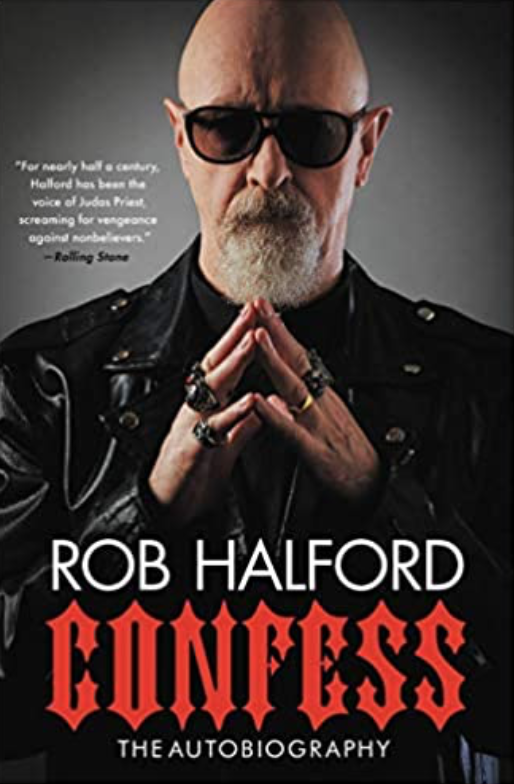 CONFESS: The Autobiography
CONFESS: The Autobiography
by Rob Halford
Hachette. 368 pages, $30.
IN CONFESS, Rob Halford discloses the trials he faced behind the scenes while fronting the heavy metal band Judas Priest. This memoir is that of a man who was torn between being a pioneer in the macho genre of heavy metal—which indeed fashioned a whole new style of masculinity—and his self-discovery as a gay man with all the (mis-)adventures that came with it, which had to be kept under the radar.
If you’re someone who’s fond of good, solid rock and binges on music documentaries, Confess will be a sweet ride. You’ll find yourself smiling at Halford’s musical and sexual victories and wincing at the bloodier and more heroin-laced tragedies. Among Halford’s confessions are the following elements, in no particular order: truckstop cruising in late 1970’s America, hotel room pranks on world tours, a string of (gay and straight) lovers, sexual frustration, struggling with drugs and alcohol, gay innuendos in Judas Priest songs, and a strong belief in the afterlife upon meeting a Jamaican psychic. These and others are detailed to the backdrop of chapters on Judas Priest’s glory days, from British bars to Madison Square Garden, from low-budget production and starvation wages to platinum discs and a Grammy.
Confess also contains a collection of photographs documenting Halford’s early life, bandmates, performances, and his current long-term partner.

If heavy metal is not your cup of tea, it could still be rewarding to read about Rob Halford: the metal god who exorcised homophobia from young metalheads’ heads. You will not find many who are homophobic, and we owe it all to Halford. He is the Trojan Metal Horse who made a bargain with his public, giving them decades of music in exchange for respecting LGBT people. After all, it was Judas Priest who first sported leather jackets and metal studs and spikes to distinguish metalheads from the punks and mods of the late ‘70s—a uniform assembled from the back room of a gay fetish shop.
Confess is a song of victory over substance abuse, inner demons, and homophobia, and as such is the Metal God’s magnum opus. That said, let me introduce a note of concern here. However influential Halford is in the metal community, he has been largely ignored by the LGBT community and in gay popular culture. It seems to me he has an important story to tell—about coming to terms with one’s sexuality, overcoming alcoholism, dealing with troubled lovers, and realizing one’s own strengths and worth—from which many LGBT people could learn a vicarious lesson.






